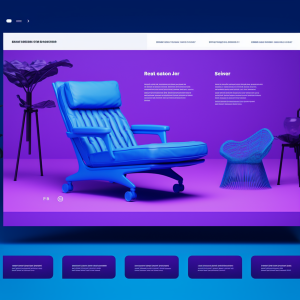- All
- Favorite
- Popular
- Most rated

Hedera Hashgraph
Explore Hedera Hashgraph, a distributed ledger technology, understanding its features and applications for decentralized solutions.

Grand Central Dispatch (GCD)
Learn to use Grand Central Dispatch (GCD) for managing concurrent tasks in iOS and macOS applications.

Firebase Analytics: iOS
Learn to integrate Firebase Analytics into iOS applications for data-driven insights and user engagement.

WeChat Mini Program Development
Explore the development of mini programs for WeChat, focusing on user experience and integration with the WeChat ecosystem.

Engagement & Monetization | Mobile Games
Explore strategies and techniques to enhance user engagement and maximize revenue in mobile games. This course covers game design principles, user retention tactics, in-app purchases, advertising strategies, and analytics to help you create a successful monetization plan that drives player satisfaction and profitability.Mobile Games

The MVC Pattern in Ruby
Explore the Model-View-Controller (MVC) pattern in Ruby, focusing on structuring applications for maintainability and scalability.

Passwordless Login Solutions for iOS
Discover techniques for implementing passwordless login solutions in iOS applications for enhanced security.

Dynamic Web Applications with Sinatra
Learn to build dynamic web applications using the Sinatra framework, focusing on routing and middleware.

Mobile Design and Usability for iOS
Explore design principles and usability techniques tailored for iOS mobile applications.

AutoLayout
Master Auto Layout for creating responsive and adaptive user interfaces in iOS applications.

Server-Side Swift
Learn server-side development using Swift, focusing on frameworks, APIs, and database integration.

Objective-C for Swift Developers
Transition from Swift to Objective-C, understanding its syntax, concepts, and integration with existing codebases.

Xcode Debugging
Learn debugging techniques and tools in Xcode for identifying and resolving issues in iOS applications.

Deploying Web Applications with Heroku
Learn how to deploy and manage web applications on Heroku, covering best practices for cloud hosting.

Mobile Design and Usability for Android
Discover design principles and usability techniques tailored for Android mobile applications.

Front-End Interview Preparation
Prepare for front-end developer interviews, focusing on HTML, CSS, JavaScript, and modern frameworks.

Firebase Analytics: Android
Learn to integrate Firebase Analytics into Android applications for data-driven insights and user engagement.

What is Programming?
Understand the basics of programming, including concepts, languages, and the software development lifecycle.

Compilers: Theory and Practice
Learn the theory and practical aspects of compiler design, including lexical analysis, parsing, and code generation.

Asynchronous JavaScript Requests
Learn to handle asynchronous requests in JavaScript, focusing on AJAX, Fetch API, and Promises.

2D Game Development with libGDX
Learn to develop 2D games using the libGDX framework, focusing on graphics, input handling, and game mechanics.

UIKit Fundamentals
Explore the fundamentals of UIKit for building user interfaces in iOS applications.

Localization Essentials
Learn best practices for localizing applications to reach global audiences, including language and cultural considerations.

JavaScript and the DOM
Discover how to manipulate the Document Object Model (DOM) using JavaScript for dynamic web content.
Key Features of Udacity
Udacity stands out in the online education space for several reasons. Here are some of its most notable features:- Nanodegree Programs Udacity’s Nanodegree programs are structured learning paths that offer in-depth training in specific fields such as data science, programming, AI, and digital marketing. These programs are designed by industry experts, ensuring that the curriculum stays relevant to current job market trends.
- Project-Based Learning Unlike traditional learning platforms, Udacity emphasizes hands-on learning. Students engage in real-world projects, allowing them to apply theoretical knowledge and build a portfolio of work that can be showcased to potential employers.
- Flexible Learning Schedules Udacity provides learners with the flexibility to study at their own pace. This makes it easier for working professionals and full-time students to fit learning into their busy schedules.
- Mentorship and Career Support Udacity goes beyond offering courses by providing one-on-one mentorship to students. Additionally, the platform offers career services, including resume reviews, LinkedIn profile optimization, and interview preparation to help learners secure jobs in their chosen fields.
- Industry Partnerships One of the key differentiators of Udacity is its collaboration with top companies. These partnerships ensure that learners are gaining skills that are in high demand. Additionally, many Nanodegree programs are co-created with industry leaders, making the certification highly valuable to employers.
Popular Udacity Courses
Udacity offers a wide range of courses across various fields. Some of the most popular and high-demand courses include:- Data Analyst Nanodegree Aimed at those interested in data science, this course covers essential skills such as data handling, data visualization, and machine learning.
- AI Programming with Python This Nanodegree focuses on building foundational AI programming skills, including algorithms and machine learning, with Python.
- Full Stack Web Developer Nanodegree Ideal for aspiring web developers, this program covers front-end and back-end development technologies, including HTML, CSS, JavaScript, and databases.
- Digital Marketing Nanodegree Designed for those looking to break into the digital marketing industry, this course offers comprehensive coverage of SEO, social media marketing, and pay-per-click advertising.
Why Choose Udacity?
If you are still wondering why Udacity could be the right choice for your online learning journey, here are some of the key reasons to consider:- Career-Oriented Learning Udacity’s courses are designed with a clear focus on employability. Each course is crafted to help learners gain practical skills that can be immediately applied in the workplace.
- Interactive Learning Experience Udacity’s project-based approach to learning ensures that students are actively engaged throughout their course. The opportunity to work on real-world projects sets Udacity apart from many other platforms that offer passive video-based learning.
- Global Community and Support With students from across the globe, Udacity offers a vibrant learning community. This provides an excellent opportunity for networking and peer-to-peer learning. Additionally, the platform offers constant support from mentors and instructors to ensure that learners stay on track.
- Value for Money While Udacity’s courses may be more expensive than some other platforms, the return on investment is significant. With a focus on high-demand skills and career services, students can feel confident that their investment will lead to real-world opportunities.
